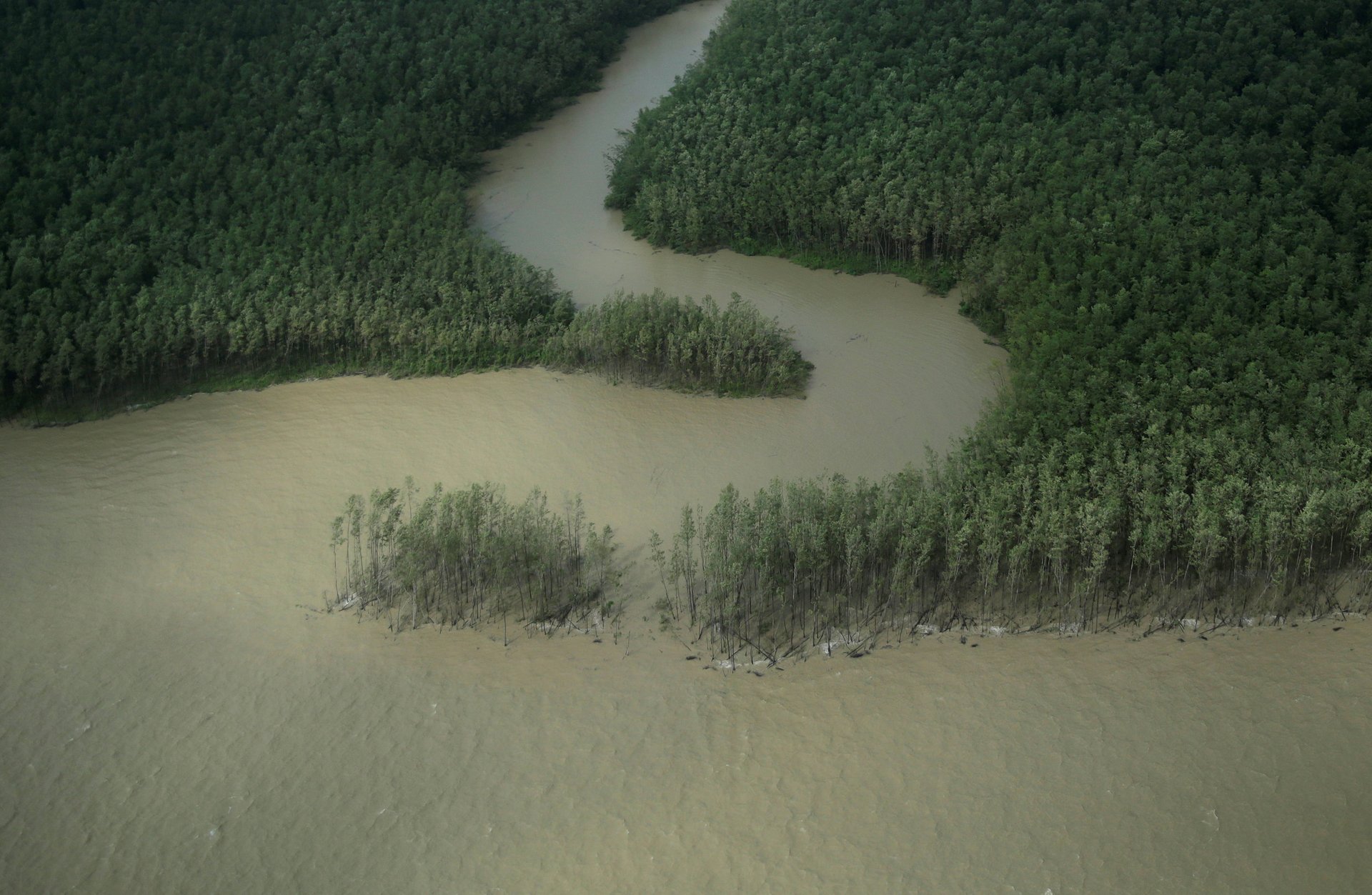Brazil is foregoing oil wealth in favor of environmental goals
Lula's government nixed an offshore drilling project in the Amazon, exposing an internal rift on how to balance conservation and economic development

Brazil’s top environmental regulator rejected a planned offshore oil drilling project by the state-owned oil company Petrobras near the origin of the Amazon River in the Atlantic Ocean on Thursday (May 18), showcasing the government’s commitment to environmental conservation.
Suggested Reading
In his written decision, Rodrigo Agostinho—the regulatory agency’s president—cited the possibility of oil spills in an area with “high socioenvironmental vulnerability,” according to the AP. He added that the Petrobras application contained numerous technical inconsistencies.
Related Content
The project is part of Petrobras’s larger plan to increase drilling in the Equatorial Margin, an area in northeast Brazil, which analysts believe has the potential to produce 7.5 billion barrels of oil.
Petrobras had reportedly earmarked $6 billion over five years in an exploration project for that area. Now, according to an analysis by Reuters, the ruling will likely end all drilling in that region before it even began.
The decision to shut down the project also revealed a political evolution for Brazil’s president Luiz Inácio Lula da Silva.
During his first stint as president, between 2003 and 2010, Lula used a surge of resource extraction in the country, including large-scale mining projects and extensive oil drilling, to help fund extensive social welfare programs for under-developed regions of the country.
Over a decade later, Lula’s administration has prioritized environmental protection, citing the existential threat of climate change in governing decisions like this one. This balancing act has drawn the ire of some of Lula’s closest political comrades.
A high-level Lula ally left the ruling coalition over the drilling decision
Senator Randolfe Rodrigues—who represents Amapa, the state where the drilling was planned—sharply criticized the government’s decision and announced he was leaving his political party in protest.
“[The] decision against research on the coast of Amapá did not listen to the local government or any citizen of my state. The people of Amapa want to have the right to be heard about the possible existence and eventual destination of our riches,” Rodrigues said in a tweet.
The loss of Rodrigues, the main opposition leader during Bolsonaro’s presidency and Lula’s presidential campaign director last year, underscores the competing environmental and development visions of Lula’s ruling coalition and the Brazilian left.
Lula has managed to juggle these two competing perspectives before. In his previous term, he was able to radically reduce deforestation in the Amazon, while overseeing Brazil’s longest period of economic growth in three decades and bringing 19 million people out of poverty. Then again, he did it by selling a whole lot of oil.
Brazil could hit peak oil by the end of the decade
The regulatory decision comes at a precarious time for Brazil’s oil industry. With Exxon dropping a major drilling project in the country last month after failing to find any oil, Brazil hasn’t seen a major oil discovery in over a decade.
That is why Petrobras—hoping to keep up the country’s massive 3.4-million-barrels-per-day export pace—turned its sights to the Equatorial Margin. Without that region, and any other new discoveries, Brazil’s oil production is forecast to peak at 4.6 million barrels a day in 2030, according to a Bloomberg report.
Additionally, with Lula’s decision in March to impose a 9.2% export tax on the oil industry likely scaring foreign companies away from investing in new exploration, it seems like Brazil’s oil boom might be coming to an end.
Related stories:
🇧🇷 Bolsonaro is headed back to Brazil to energize the far right